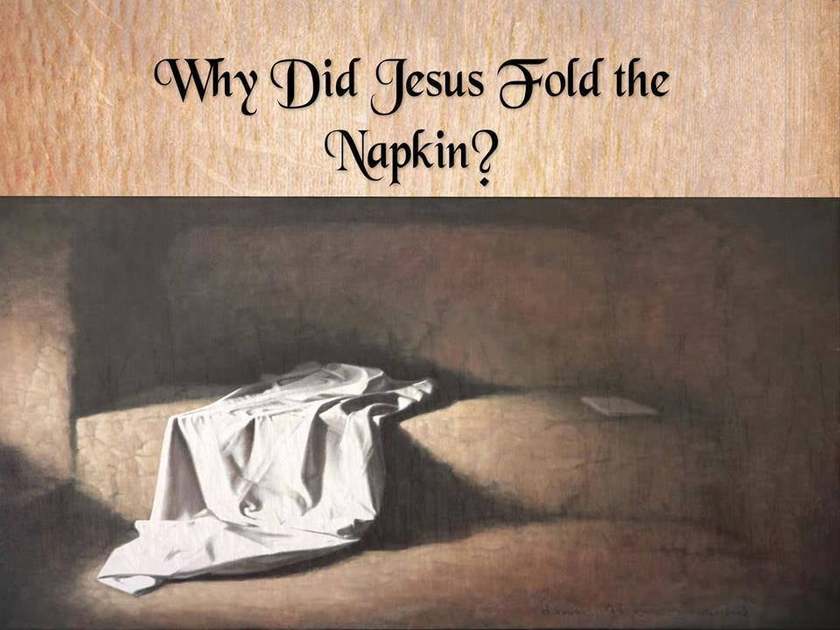I will share about Christian books I have read or listened to.
I will be sharing about my life before and after Christ. I will include stories about my pet and other pets I have encountered.
Why did Jesus fold the linen burial cloth after His resurrection? I never noticed this....
The Gospel of John (20:7) tells us that the napkin, which was placed over the face of Jesus, was not just thrown aside like the grave clothes. The Bible takes an entire verse to tell us that the napkin was neatly folded, and was placed separate from the grave clothes.
Early Sunday morning, while it was still dark, Mary Magdalene came to the tomb and found that the stone had been rolled away from the entrance. She ran and found Simon Peter and the other disciple, the one whom Jesus loved. She said, 'They have taken the Lord's body out of the tomb, and I don't know where they have put him!' Peter and the other disciple ran to the tomb to see.. The other disciple outran Peter and got there first. He stooped and looked in and saw the linen cloth lying there, but he didn't go in.
Then Simon Peter arrived and went inside. He also noticed the linen wrappings lying there, while the cloth that had covered Jesus' head was folded up and lying to the side.
Was that important? Absolutely!
Is it really significant? Yes!
In order to understand the significance of the folded napkin, you have to understand a little bit about Hebrew tradition of that day. The folded napkin had to do with the Master and Servant, and every Jewish boy knew this tradition.
When the servant set the dinner table for the master, he made sure that it was exactly the way the master wanted it..
The table was furnished perfectly, and then the servant would wait, just out of sight, until the master had finished eating, and the servant would not dare touch that table, until the master was finished. Now, if the master were done eating, he would rise from the table, wipe his fingers, his mouth, and clean his beard, and would wad up that napkin and toss it onto the table.
The servant would then know to clear the table. For in those days, the wadded napkin meant, 'I'm done'.
But if the master got up from the table, and folded his napkin, and laid it beside his plate, the servant would not dare touch the table,
because........... The folded napkin meant,
'I'm coming back!'
HE'S COMING BACK!!!!

The Mission of God
All of our lives are spent on something.
Most people spend their days focused on growing a family, building a career, or amassing possessions. While none of those things are necessarily wrong, they can become distractions from our ultimate goal in life.
In the book of Acts, we see Paul’s transformation in Christ. As a result of meeting Jesus and being changed by His grace, Paul spends the rest of his life preaching the good news of Jesus.
For Paul, God’s grace and salvation were so great that nothing on this earth could compare to doing His work.
Paul said that nothing in his life mattered as much as telling others about God’s grace. His goal in life was to finish his own race well by faithfully accomplishing as much of the mission of God as possible:
"However, I consider my life worth nothing to me; my only aim is to finish the race and complete the task the Lord Jesus has given me—the task of testifying to the good news of God's grace."
Acts 20:24 NIV
The mission of ...














